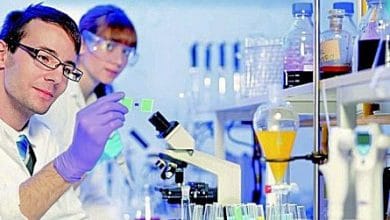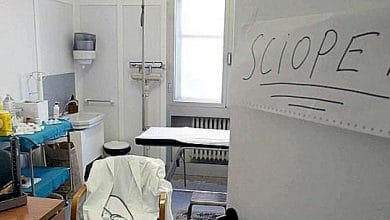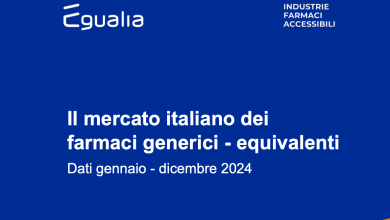
In Italy it is possible to undertake the career of the medical-scientific informant, increasingly mistreated in recent years and accessible even with a shorter degree, namely the one in ISF
Following the publication of the much discussed data from Almalaurea regarding the professional status of pharmacy graduates, there were many graduates who felt anything but represented by those statistics. Moreover, when it comes to the labor market in Italy, the data corresponding to practically any sector often appear to those directly involved in the research, if not suspicious, at least quite strange and not very consistent with their direct experience.
26 Dec 2015 – Daniele Di Stefano – LiveUniCT
 But trying, for a moment, to forget the statistics, we want to ask ourselves the fateful question again: is graduating in pharmacy and CTF worth it? This time, however, let's broaden our views a bit, and focus on the professional outlets that really exist after obtaining the title.
But trying, for a moment, to forget the statistics, we want to ask ourselves the fateful question again: is graduating in pharmacy and CTF worth it? This time, however, let's broaden our views a bit, and focus on the professional outlets that really exist after obtaining the title.
Let's start with Italy.
Despite the numerous and diversified careers professed by universities, on balance, in Italy, graduates in pharmacy and CTF have a handful of roads in front of them:
become collaborators in the pharmacy, with all that follows;
become the owners of a pharmacy or parapharmacy themselves, if you have a family business that has already started, or if you have the necessary resources to start one;
embark on a career as a medical-scientific informant, increasingly mistreated in recent years and accessible even with a shorter degree, namely the one in ISF;
continue his studies and, with a little luck and further sacrifices, be able to enter a specialization school in hospital pharmacy, with the aim of working in public health.
As far as opportunities in companies are concerned, in Italy they are quite rare, very slightly more frequent for CTF graduates than those in pharmacy. To complete this scenario there is the social and working status of the pharmacist, a role that can be said to have practically remained unchanged over the years, but which has even been devalued and considered less necessary than once believed.
But is the situation the same even outside the national territory?

Even the work in the pharmacy, outside Italy, follows different tracks. The Italian pharmacy, in fact, closed in its inability to completely detach itself from the past, certainly cannot be said to be comparable to the large pharmacy chains that exist abroad, especially in the UK. In reality of this type, much more extensive and prolific, department pharmacists are needed, as well as pharmacists responsible for the entire point of sale who, although not the owners, exercise a managerial role. Managerial roles are also those sought after by large companies, which in Italy are not many; these career and growth opportunities are also accessible, but not only, to graduates in Pharmacy and CTF, and the marketing Manager role is an example of this.
Continuing the overview, in some countries one can even think of living by doing research, but, alternatively, the right specialization through a master's degree, and therefore after investing money in training, allows, again in companies, to operate in pharmacovigilance, sales and in many other sectors.
Obviously, these are not absolute certainties, but achievable possibilities. Working abroad is not all roses and flowers: you have to proceed with the conversion of qualifications, settle in, support yourself, work a lot, fight being away from home, without perhaps getting the desired results. And it is also true that these possibilities may appear unlikely, if not impossible, in the eyes of a recent graduate or a student close to graduating in pharmacy and CTF from an Italian university, especially one from the South. But in a market and a world of work that insistently desire flexibility, mobility and adaptability, perhaps it is also true that the idea of packing your bags and leaving the nest without too much remorse before life gets out of hand must necessarily be a possibility to contemplate too .
Studying psychology, what are the opportunities offered by a degree in this area
If the objective is to work in a public context, the Psychologist's access to the National Health Service is regulated by further decree laws, which provide for the same requirements asarticle 2. In principle, it must be kept in mind that the graduate who is not registered with the Order can only carry out some roles such as that of scientific informant, manager of social services, teaching pedagogy in master schools or social psychology in some professional institutes.
(taken from On Tuscia.it of 12/23/2015)
Ed.: we remind you that the activity of the Scientific Pharmaceutical Representative is regulated by the Legislative Decree 219/06 which in article 122 indicates the degree qualifications suitable for carrying out this activity:
Medicine and surgery, life sciences, organic or biological chemistry, pharmacy, pharmaceutical chemistry and technology, or veterinary medicine. Alternatively, scientific representatives must be in possession of the bachelor's degree in scientific information on drugs (Graduating class L-29). The Minister of Health may, after consultation with the Ministry of Education, University and Research, by decree, recognize other degrees as suitable for the purposes of this article, specifying the teachings essential for training purposes.
With the Decree of 3 August 2007, the degree in natural sciences and specialist degree or master's degree belonging to class 9/S – Class of specialist degrees in medical, veterinary and pharmaceutical biotechnology and class 68/S – Class of lspecialist degrees in natural sciences. Class 1 degrees are also admitted - Class of degrees in biotechnology, Now Class L-02 - and class 24 - Class of ldegrees in pharmaceutical sciences and technologies (now Class L-29) provided pharmacology, pathology, toxicology, medicinal and toxicological chemistry, pharmaceutical technology and legislation have been passed.
With the Decree of 1 September 2009 also the degrees of Class 62/S (Class of specialist degrees in Chemical Sciences) and Class LM-54 (Class of master's degrees in Chemical Sciences).
THERE IS NO MINISTERIAL DECREE THAT ADMITS THE DEGREE IN PSYCHOLOGY AMONG THOSE SUITABLE FOR CARRYING OUT THE ACTIVITY OF SCIENTIFIC INFORMER OF THE DRUG.
For more details and insights, see "How to access the profession of ISF”





